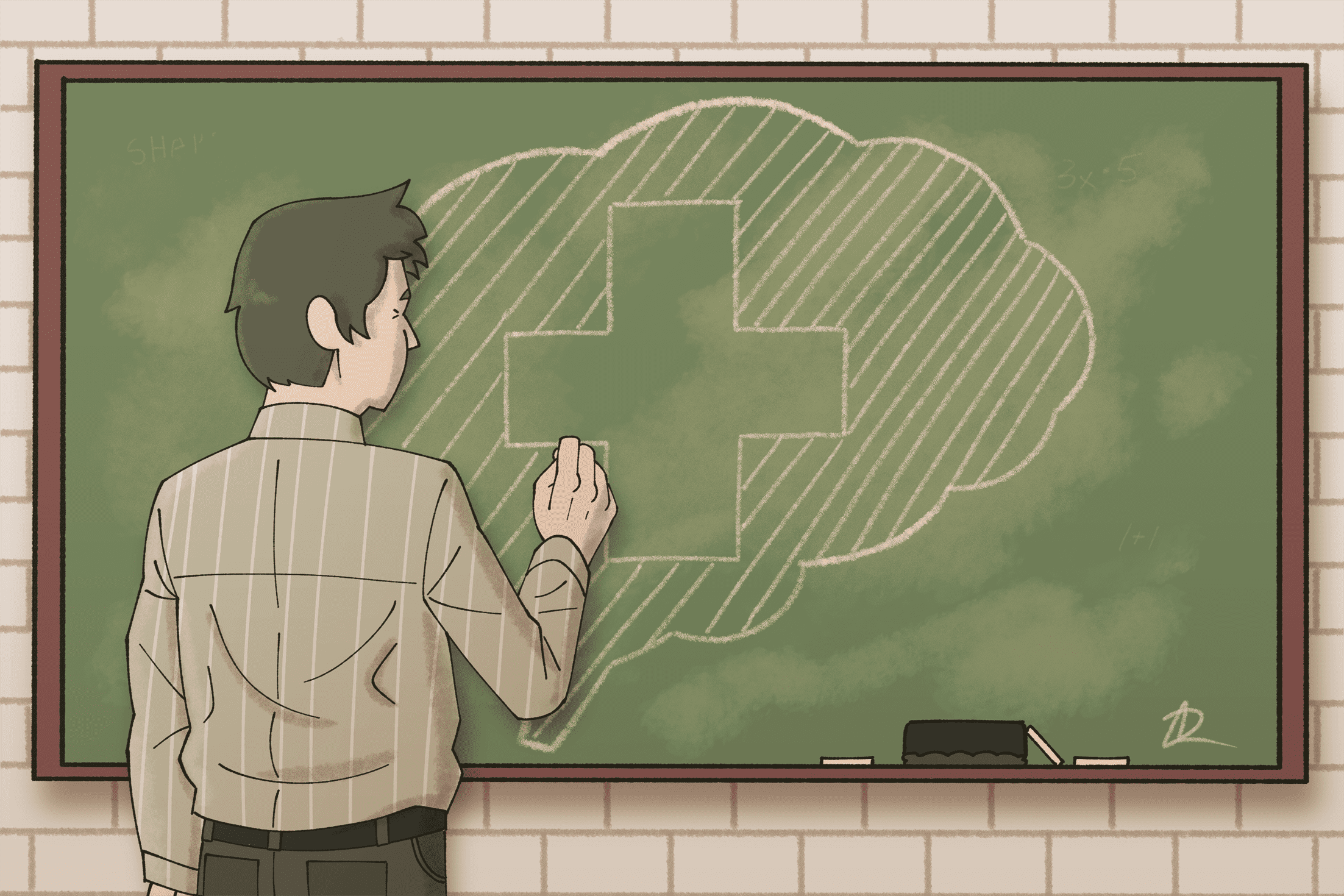Should professors do something to help struggling students out? To put it simply, yes.
It’s not uncommon for a student to struggle, if not fail, a class due to their debilitating mental health. Some students drop out for good because they just can not take it anymore. What if students who struggled with their mental health didn’t have to struggle with school too?
Sometimes, professors will accommodate students who are ill or injured, such as giving them an extension, an excused absence or allowing them to make up a test. Without these accommodations, students would not be able to pass or get a good grade because they are at an unexpected disadvantage.
However, students who struggle with mental health are at the same disadvantage as those who are sick.
Depression is not just an overwhelming sadness. According to Healthline, it can result in insomnia, risk of heart attack, constricted blood vessels, fatigue and a weakened immune system.
And that is just depression. There are numerous other mental illnesses that wreak havoc on the body and brain, and sadly more students struggle with these problems than we think.
The National Education Association reports that “the majority of college students (more than 60 percent) meet the criteria for at least one mental health problem—a nearly 50 percent increase since 2013, according to the Healthy Minds survey, published earlier this month.”
Furthermore, the Suicide Prevention Resource Center reports that “mental health problems can affect a student’s energy level, concentration, dependability, mental ability, and optimism, hindering performance. Research suggests that depression is associated with lower grade point averages and that co-occurring depression and anxiety can increase this association.”
It’s clear that mental illness has put thousands, if not millions, of students at a disadvantage. And it’s not their fault if they are falling behind.
So, what can professors do to help our students who are struggling with this?
Sara Abelson for The Association of College and University Educators suggests a few ways educators can provide support to students.
Abelson notes that instead of simply letting things slide, professors can take action by putting mental health resources in their syllabi.
“We see that students find it helpful when faculty include a statement on mental health on their course syllabus. Doing so helps to set expectations, normalizes the need to seek help, and emphasizes the link between mental health and academic success.”
Abelson further explains that professors can introduce flexibility in their pacing, such as altering the time assignments are due.
“…We know that sleep is important to mental health and a small change to deadlines can reinforce, in a subtle way, good sleep habits. Assignments can be due by 5pm, instead of ‘by midnight’ or at 9am.”
Another suggestion includes offering more opportunities for extra credit. This incentivizes students in a way where they are motivated to continue engaging in class, thus getting more chances to learn.
Ultimately, professors have the opportunity to be more caring and understanding to their students, in their classroom expectations and their attitudes. Just because a student has fallen behind does not mean they don’t care or are not trying. It is a sign they may need a little help.
For the professors who made it a practice to accommodate students like this, thank you. We want you to know that it truly does make a difference. As we roll into our studies once again with the new semester, we encourage all professors here at Montclair State University to help us in the ways we need, so we can learn, succeed and thrive, as you wish for us to do.
However, it is not mandatory for a professor to make accommodations at all based on just the student asking. But there are still ways to get help.
The Disability Resource Center (DRC), located in Cole Hall room 331, is equipped to help students achieve academic success while they struggle.
“The DRC provides assistance to students with physical, sensory, learning, psychological, neurological, and chronic medical disabilities.”
The DCR offers different accommodations based on each student that registers with them. Students can register through their page on Montclair State’s website.
Confidentiality is important to the DRC and they will not tell your professor your diagnosis, just the accommodations students need.
The DCR doesn’t just provide notice to professors to give accommodations to students, they also have tons of resources they provide in collaboration with Counseling and Psychological Services (CAPS).
CAPS offers Let’s Talk for all students, not just those registered with the DRC. Let’s Talk is drop-in consultations, in person or on Zoom, Monday through Friday with mental health professionals.
CAPS also provides workshops, presentations and mental health screenings.
There are tons of options for students to get help on campus, but it is important that professors take the little steps to create a safer space for those who are struggling.



